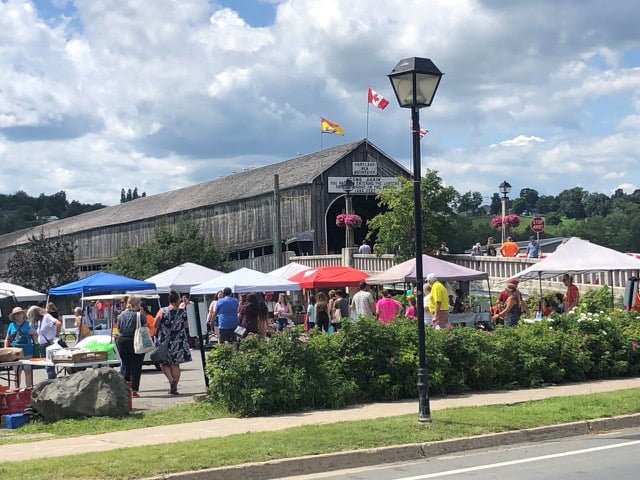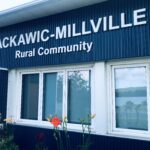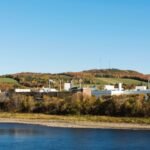Farmers across the province face reduced yields, rising uncertainty as droughts intensify
This summer saw a drastic change in weather conditions, and with that, a drastic change in farmers’ crops.
By the end of the summer, almost two-thirds of New Brunswick was experiencing extreme dryness or drought due to climate change.
Matt Hemphill, the Executive Director of Potatoes New Brunswick, said the Aroostook Bridge, also known as the Potato Belt, suffered from the extreme conditions.
North of the Aroostook Bridge, St. Clinton, Drummond, and Grand Falls received less precipitation, but were still able to produce an average crop. South of the Aroostook Bridge, Woodstock to Perth Andover, suffered the most. The areas saw an estimated 15–25 per cent yield reduction.
“One thing I’ve learned in the last 15 years being in this business is you can only control what you can control. So, regardless of what we do, no matter how good the quality of the seed potato is, no matter how good your fertility program is, Mother Nature will always dictate 20 to 30 per cent of the crop, regardless of what you do,” said Hemphill.
Strawberry Hill Farm, based in Woodstock, has faced similar problems. The farm grows a variety of produce, one of which is sweet potato, which did not perform the way they wanted
“Crops that matured early did well, but sweet potato size is down because it needed water late August and early September when we didn’t have it,” said owner Tim Livingstone.
Livingstone says they could have pulled water from the Saint John River, but don’t want to risk contaminating their crops.
Both Potatoes NB and Strawberry Hill Farm have plans to combat the expected more intense and frequent droughts predicted by the Government of Canada’s Changing Climate Report and the Climate Atlas of Canada.
Hemphill says they will be working on a irrigation pilot next year, with two more in the future. Their goal with the pilots is to see what they need to do to ensure healthy harvests during the extreme weather conditions.
“You have to do an environmental impact assessment. You have to consult with different groups before you can just start irrigating. So, the goal of these pilot projects is to learn. And then from there, go more large-scale with bigger projects,” said Hemphill.
Strawberry Hill Farm is working to create an irrigation pond to address long-term impacts. Livingstone says they also work hard to develop good, biologically active soil, which helps hold water and foster healthy roots.
The reality of farming has changed, and farmers like Hemphill are calling it what it is and doing everything they can to stay one step ahead.
“I think this weather is going to be what it is. You’re going to see more extreme weather events, whether it’s precipitation or lack of precipitation. I think it’s a new reality here,” said Hemphill.














